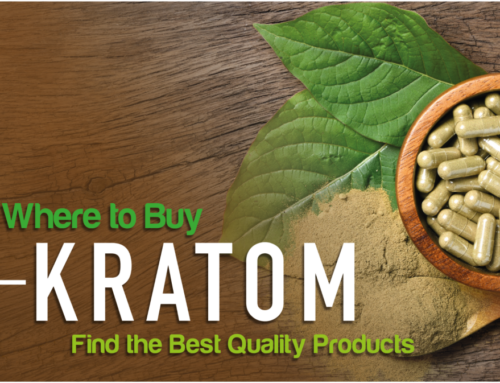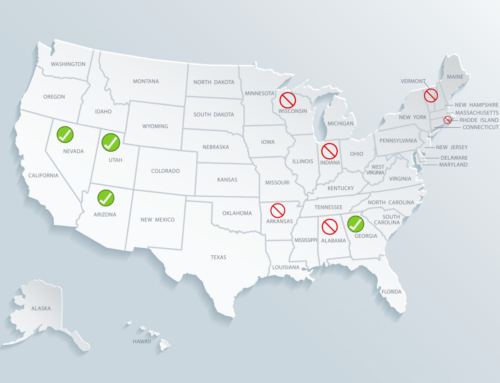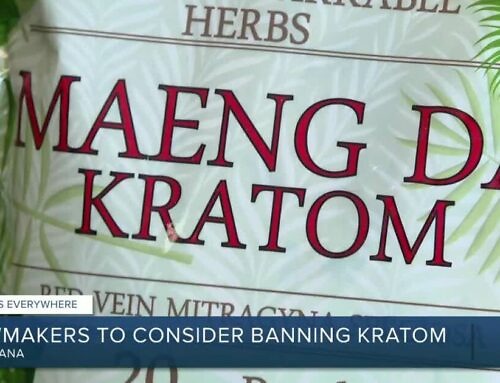If you’re a resident of Oregon and have been curious about the legal status of kratom in the state, you’ve come to the right place. In this article, we’ll delve into the question, “Is kratom legal in Oregon?” and provide you with all the information you need. So grab a cup of coffee, sit back, and let’s dive in!
Now, before we get into the nitty-gritty of kratom’s legality in Oregon, let me just say that this topic can be a bit confusing. Laws can change, and it’s always important to stay up-to-date with the latest regulations. That being said, as of the time of writing this article, kratom is indeed legal in the state of Oregon. However, it’s essential to understand the nuances and potential restrictions surrounding its use. So, let’s break it down and explore the details together. Whether you’re a kratom enthusiast or simply curious about its legal status, we’ve got you covered!
Table of Contents
Is Kratom Legal In Oregon?
Kratom, a tropical tree native to Southeast Asia, has gained popularity in recent years for its potential health benefits. However, its legal status in various states across the United States is a topic of confusion and debate. In this article, we will explore the legality of kratom in the state of Oregon.
Understanding Kratom
Kratom, scientifically known as Mitragyna speciosa, is a tree that belongs to the coffee family. Its leaves contain active compounds that have stimulating and sedative effects. Traditionally, kratom has been used in Southeast Asia for its medicinal properties, such as pain relief and mood enhancement.
The Legal Status of Kratom in Oregon
Currently, kratom is legal in the state of Oregon. It is not classified as a controlled substance, and there are no restrictions on its possession, sale, or use. This means that individuals can freely purchase and consume kratom products without fear of legal repercussions.
However, it is essential to note that the legal status of kratom can change over time. Legislation regarding kratom is subject to revision, so it is crucial to stay informed about any updates or changes in the law.
Factors Influencing Kratom Legality
The legality of kratom varies from state to state due to several factors. One of the main factors is the level of public awareness and understanding of kratom. Misinformation or lack of knowledge about kratom’s potential benefits and risks can lead to negative perceptions and calls for its prohibition.
Another factor is the influence of lobbying groups and organizations. Some organizations advocate for the ban of kratom, citing potential health risks and concerns about its addictive properties. On the other hand, proponents of kratom argue that it is a natural alternative to pharmaceutical drugs and can provide relief for various health conditions.
Benefits of Kratom
Kratom has been praised for its potential health benefits. Some users claim that it can help with pain management, reduce anxiety and depression, increase energy levels, and improve focus and concentration. However, it is important to note that these claims are mostly anecdotal, and scientific research on kratom is still limited.
Using Kratom Responsibly
If you choose to use kratom, it is essential to do so responsibly. Start with a low dosage and gradually increase as needed. It is also crucial to be aware of potential side effects, such as nausea, dizziness, and constipation. Additionally, avoid mixing kratom with other substances, especially alcohol or opioids, as this can increase the risk of adverse effects.
Conclusion
In conclusion, kratom is legal in Oregon, allowing individuals to purchase and consume it without legal restrictions. However, it is essential to stay informed about any changes in kratom legislation and to use it responsibly. As with any substance, it is recommended to consult with a healthcare professional before using kratom, especially if you have any underlying health conditions or are taking medications.
Key Takeaways: Is Kratom Legal In Oregon?
- Kratom is legal for individuals aged 18 and above in Oregon.
- Consumers can purchase and possess kratom without any legal repercussions.
- Oregon has not imposed any restrictions or bans on the sale or use of kratom.
- It is important to always buy kratom from reputable sources to ensure quality and safety.
- While legal, it is crucial to use kratom responsibly and in moderation.
Frequently Asked Questions
What is the current legal status of kratom in Oregon?
Kratom is currently legal in the state of Oregon. There have been no laws enacted that specifically ban or regulate the sale, possession, or use of kratom. As of now, Oregon residents are able to purchase and consume kratom without any legal restrictions.
However, it’s important to note that the legality of kratom can change over time. It’s always a good idea to stay updated on the latest laws and regulations regarding kratom in your area.
Is kratom classified as a controlled substance in Oregon?
No, kratom is not classified as a controlled substance in Oregon. The Oregon Controlled Substances Act does not list kratom as a controlled substance, which means it is not subject to the same legal restrictions as drugs like marijuana or opioids.
However, it’s worth mentioning that the U.S. Food and Drug Administration (FDA) has issued warnings about the potential risks associated with kratom use, and some states have chosen to regulate or ban kratom on their own. As of now, Oregon has not taken any such action.
Can I buy kratom products in Oregon?
Yes, you can buy kratom products in Oregon. There are several local shops and online vendors that sell kratom in various forms, such as powder, capsules, and extracts. It’s important to ensure that you are purchasing kratom from a reputable source to ensure its quality and safety.
Additionally, it’s a good idea to familiarize yourself with the laws and regulations regarding kratom in your specific city or county, as some local jurisdictions may have additional restrictions or regulations.
Is it legal to possess and use kratom in Oregon?
Yes, it is legal to possess and use kratom in Oregon. There are currently no laws that prohibit individuals from possessing or using kratom for personal use. However, it’s important to use kratom responsibly and in moderation, as excessive use can lead to potential health risks.
As with any substance, it’s always a good idea to consult with a healthcare professional before using kratom, especially if you have any underlying medical conditions or are taking medications that may interact with kratom.
Are there any age restrictions for purchasing kratom in Oregon?
As of now, there are no age restrictions for purchasing kratom in Oregon. However, individual vendors may have their own policies regarding the sale of kratom to minors. It’s always a good idea to check with the specific vendor or shop to determine their age restrictions and requirements.
Additionally, it’s important to keep in mind that using kratom responsibly and in moderation is crucial, regardless of age. It’s always recommended to educate yourself on the potential risks and benefits of kratom before using it.
Kratom & the Law – Is Kratom Legal?
Final Summary:
So, is kratom legal in Oregon? After diving into the topic and exploring the legal landscape, it’s clear that kratom is currently legal in the state of Oregon. This natural herb, known for its potential medicinal benefits and recreational use, remains accessible to individuals who wish to incorporate it into their daily routines. However, it’s important to stay informed about any changes in legislation, as laws regarding kratom can evolve over time.
Kratom enthusiasts in Oregon can breathe a sigh of relief knowing that they can continue to enjoy the benefits of this plant without fear of legal repercussions. Whether it’s for managing pain, boosting energy, or simply unwinding after a long day, kratom offers a variety of potential uses. Remember to always purchase from reputable sources and educate yourself on responsible kratom consumption to ensure a safe and enjoyable experience.
In conclusion, the legality of kratom in Oregon provides a sense of freedom for those who rely on its potential benefits. As the demand for natural alternatives grows, it’s crucial to stay informed and advocate for responsible use. So, whether you’re a longtime kratom advocate or just discovering its potential, Oregon remains a state where kratom enthusiasts can legally access and enjoy this fascinating herb. Keep exploring, stay informed, and embrace the possibilities that kratom has to offer.










Leave A Comment